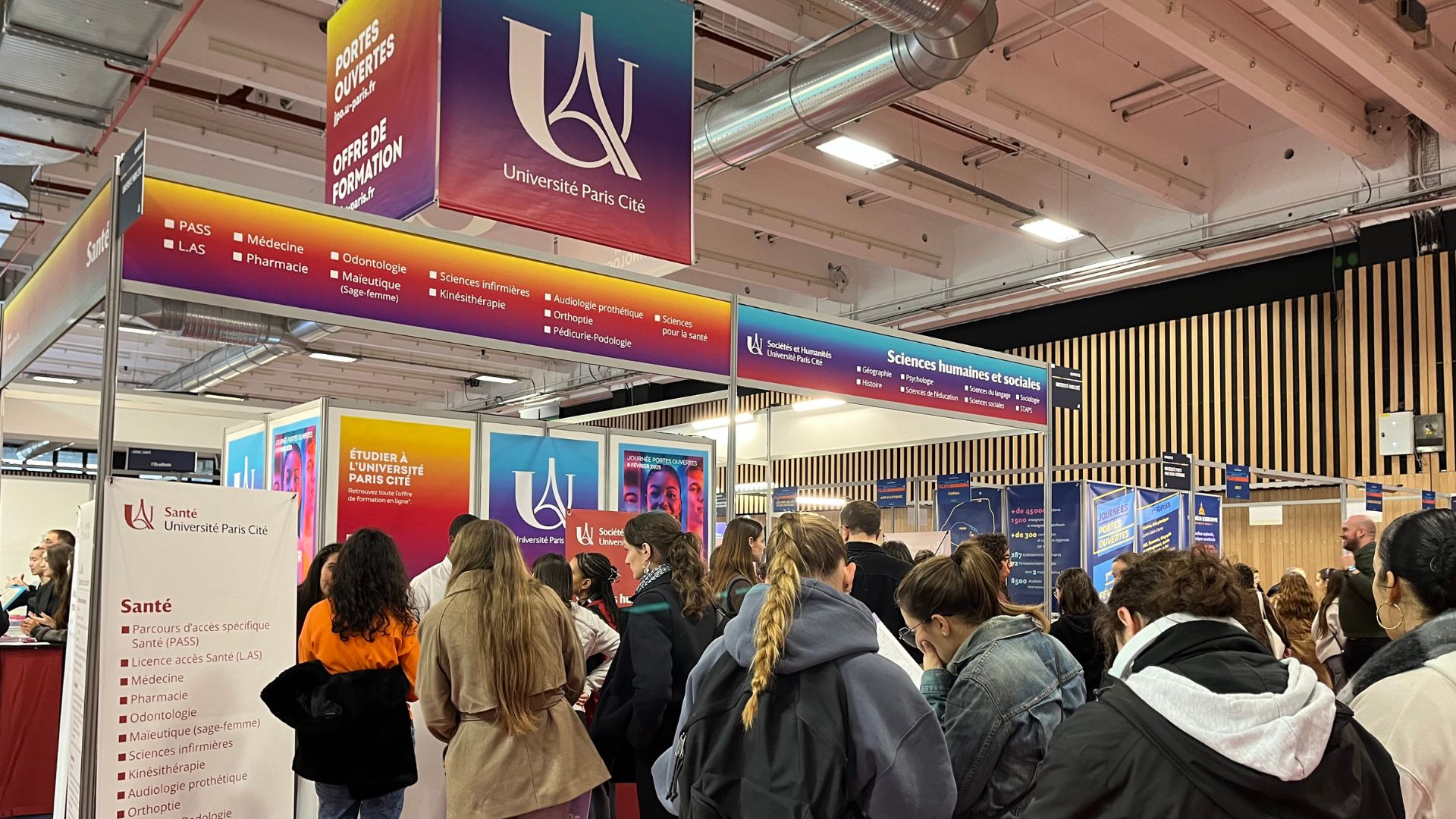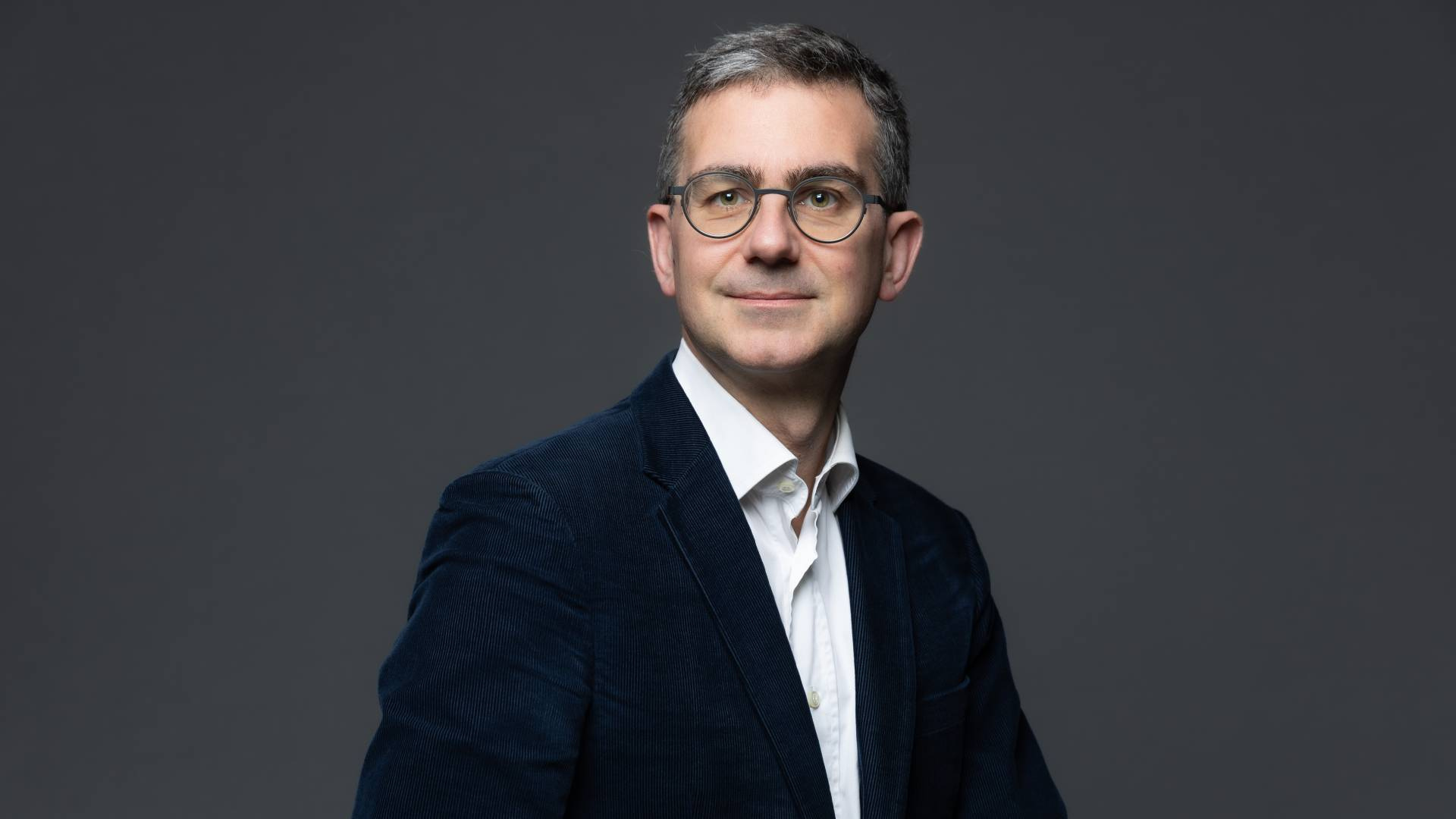ECTS
120 crédits
Niveau d'études visé
BAC +5 (niveau 7)
Durée
2 ans
Langue des enseignements
Anglais
Présentation
The BME-Paris Master is designed to provide a 2-year education program in the field of bioengineering, at the cross-road of biomedical and engineering sciences. It results from a partnership between Université Paris Descartes, Arts-et-Métiers ParisTech and Université PSL.
Based on this unique partnership, this Master is founded on an educational policy that favors interdisciplinarity and students’ initiative as well as international perspective. This policy is supported by the top-level and complementary expertise and know-how of the three partners: engineering sciences in the three engineering schools within PSL (ESPCI Paris, Mines ParisTech and Chimie ParisTech) and Arts-et-Métiers ParisTech, on the one hand, and biomedical and health sciences at Université Paris Descartes, on the other.
Teaching faculty is mostly from the partner institutions. Guest lecturers include hospital clinicians (AP-HP), and researchers from other schools and universities as well as from private companies (e.g. GE Healthcare, Philips Healthcare, Renault, Sanofi, Thalès, Materialise Medical, …).
Learning outcomes
The BME-Paris Master proposes a program of excellence intended for students with a wide variety of backgrounds (biology, chemistry, physics, mathematics, engineering as well as medicine, pharmacy and other health sciences…).
The overarching goals of the Master are:
- to provide students with the knowledge and tools required in a wide range of the biomedical engineering fields;
- to foster a fruitful collaborative spirit between engineering and medical students, that will eventually bridge the existing « culture gap » between the corresponding professions.
While the second year (M2) offers five specialization tracks, the first year (M1) is devoted to strengthening and broadening students’ skills in specific engineering and biomedical subjects. Students are advised in their individual choices of teaching units, to bring them up to date on the fundamental science subjects they may not have acquired through their previous studies (eg physiology and anatomy for engineering students, or signal processing and mechanics for biology or medical students).
Biomaterials and Biodevices (BioMAT) is one of the 5 M2 proposed tracks.
This university program is part of Université Paris Cité's Graduate Schools of Innovative Materials and Musculo-Skeletal Sciences, connecting master's and doctoral courses with cutting-edge research labs.
- The Graduate School of Innovative Materials offers students the chance to explore creating materials to address new socio-economic challenges. Read more >
- The Graduate School of Musculo-Skeletal Sciences focuses on using advanced methods to study diseases affecting mineralized tissues, joints, muscles, and tendons. Read more >
Objectifs
the field of prosthetics design. Remarkable opportunities for the biomedical field have emerged from the recent progress in the understanding, characterization, and manipulation of biological materials. Design, control, and modelling of biological, bio-sourced, biocompatible, and biomimetic materials are central to numerous biomedical innovations ranging from therapeutic approaches in the field of regenerative medicine to industrial processes.
The BioMAT track provides scientists, engineers, and medical students with the wherewithal to face the numerous challenges of biomaterials R&D; how to apply their skills in order to solve specific biomedical problems, how to carry out innovative and fruitful research with the appropriate methods and ethical considerations, how to collaborate and interact in projects at the interface among materials, biomedical science, and medicine. It is accessible to engineering and life-science students (materials science, physics, chemistry, medicine, pharmacy, dentistry, and biology) preparing for career paths in academic research or industrial R&D environments.
The program provides students in-depth knowledge of the understanding and use of biomaterials, from nanoscale biomolecules, such as proteins, lipids, and synthetic polymers to macroscale prostheses, orthesis, and implants. This education relies on a rich combination of high-level lectures, conferences and exchanges with invited experts and interdisciplinary group projects. From all these experiences, the students will learn how to apply their skills on health-related applications ranging from implant and tissue engineering through the modelling and characterization of biological materials to material design for therapeutics.
Compétences visées
Respect scientific ethics
- Design and develop scientific projects
- Implement a project, define the objectives and context, carry out and evaluate the action
- Conduct and develop scientific and technical projects
- Analyze, diagnose and interpret the results of scientific experiments
- Know how to assess professional risks, implement specific evaluation methods
- Master specific methods and tools
Cross-curricular skills
- Work independently, manage time, self-evaluate.
- Use information and communication technologies.
- Conduct information research, identify access modes, analyze relevance, explain and transmit.
- Write clearly, prepare appropriate communication materials.
- Scientific communication in English.
- Working as a team: integrating, positioning, collaborating.
- Integrate into a professional environment: identify your skills and communicate them.
Programme
La formation se déroule en anglais, à temps plein.
Deux stages de 2 mois obligatoires en Master 1 et un stage de 5 mois obligatoire en Master 2 dans un laboratoire de recherche académique, hospitalier ou industriel.
Sélectionnez un programme
Master 1 Ingénierie de la santé
Open Your Mind seminars
0 créditsScientific thinking and communication
6 créditsLanguages (English or French)
0 créditsMedicine and Science
4 créditsScientific communication
2 crédits
6 UE au choix
24 créditsAu choix : 6 parmi 15
Molecular & cellular biology for engineers
4 créditsFrom molecular to cellular and tisssue biology
4 créditsAnatomy & physiology for engineers
4 créditsMathematics I : A mathematical introduction to data analysis
4 créditsMathematics II : Applied Mathematics for biological systems
4 créditsComputer programming
4 créditsBioMedical modeling
4 créditsBiological modeling and dynamical systems
4 créditsPhysics for bioImaging I
4 créditsPhysics for bioImaging II
4 créditsMechanics I : Basics in deformable solid mechanics
4 créditsMechanics II : Continuous media mechanics
4 créditsChemistry for engineers
4 créditsSupramolecular chemistry
4 créditsChemical engineering of nanoparticles for therapy and diagnostic
4 crédits
Scientific writing
3 créditsEthics and Patents
3 créditsBioTech FabLab projects
12 créditsInternship
12 crédits
Open Your Mind seminars
0 créditsScientific thinking and communication
6 créditsLanguages (English or French)
0 créditsMedicine and Science
4 créditsScientific communication
2 crédits
6 UE au choix
24 créditsAu choix : 6 parmi 15
Molecular & cellular biology for engineers
4 créditsFrom molecular to cellular and tisssue biology
4 créditsAnatomy & physiology for engineers
4 créditsMathematics I : A mathematical introduction to data analysis
4 créditsMathematics II : Applied Mathematics for biological systems
4 créditsComputer programming
4 créditsBioMedical modeling
4 créditsBiological modeling and dynamical systems
4 créditsPhysics for bioImaging I
4 créditsPhysics for bioImaging II
4 créditsMechanics I : Basics in deformable solid mechanics
4 créditsMechanics II : Continuous media mechanics
4 créditsChemistry for engineers
4 créditsSupramolecular chemistry
4 créditsChemical engineering of nanoparticles for therapy and diagnostic
4 crédits
Scientific writing
3 créditsEthics and Patents
3 créditsBioTech FabLab projects
12 créditsInternship
12 crédits
Master 2 Ingénierie de la santé - Parcours : BioMAT
Open Your Mind seminars
0 créditsInterdisciplinary week
3 créditsResearch Methodology
3 créditsPractical training: Hands on state-of-the art tech
3 créditsFundamentals in biomaterials science and engineering
3 créditsAnatomy of the Musculo-skeletal System
3 crédits1 UE au choix
3 créditsAu choix : 1 parmi 4
2 UE au choix
6 créditsAu choix : 2 parmi 3
Biointerfaces
3 créditsCell mechanics, adhesion and motility
3 créditsSoft cell: substrate interactions
3 crédits
Au choix
6 créditsAu choix : 1 parmi 2
Sub-track: Tissue reconstruction and regenerative medicine
6 créditsAu choix : 2 parmi 4
Principles in tissue engineering
3 créditsCardiovascular repair
3 créditsOsteoarticular Repair
3 créditsTissue engineering: Clinical applications
3 crédits
Sub-track: Nano- and micro-systems for medicine
6 créditsAu choix : 2 parmi 3
Business Plan Workshop
3 créditsResearch Internship
26 créditsEthical Aspects of Biomedical Engineering
1 crédits
Stages et projets tutorés
OUI
Contrôle des connaissances
Les modalités de contrôle des connaissances (MCC) reposent sur des schémas classiques d’évaluation pour les UEs : examen terminal écrit ou oral, contrôle continu ou mixte. Certaines UEs incluent à la fois des examens oraux et écrits.
Pour connaitre le détail des modalités de contrôle des connaissances et compétences, nous vous invitons à prendre contact avec l’UFR (voir le lien en savoir+)
Aménagements particuliers
Admission
Public cible
Etudiants français et étrangers titulaires d’une licence ou d’un Master scientifique, étudiants en médecine ou en pharmacie, élève ingénieurs.
Conditions d'admission
Conditions to apply for the 1st year of our master’s program (M1)
- having obtained or being in the process of validating a Licence 3 or a Bachelor’s degree in science (particularly, but not restricted to, life and health sciences, engineering, chemistry, physics, mechanics, mathematics, computer science).
- being a physiotherapist or a 4th year student in a physiotherapist school
Conditions to apply directly for the 2nd year of our master’s program (M2)
- For students in science or engineering:
- having obtained or being in the process of validating a Master 1
- having obtained or being in the process of validating a Master’s degree
- being a 3rd year student in an engineering school or
- being a 2nd year student in an engineering school (particularly Arts et Métiers ParisTech, Mines Paris Tech, Chimie ParisTech and ESPCI Paris) affiliated with the Master BME Paris program for a double diploma
- being a 2nd year student at ENS Paris
- For students in health science (medical, pharmacy or dental schools):
- being a 3rd year student in the Medicine-Science or Pharmacy-Science program at University Paris Descartes or at l’Ecole de l’Inserm Liliane Bettencourt
- being an intern or Doctor of Medicine (MD), Pharmacy (Pharm.D), Dental Surgery (DDS) or Dental Medicine (DMD)
- For physiotherapists or 4th year students in physiotherapist schools: you can apply directly for the M2 only if you are able to prove that you attended an additional research oriented curriculum (formation complémentaire à et pour la recherche)
Pré-requis
C1 level in English (TOEIC, TOEFL, …).
Modalités de candidature
Online application and interview for preselected candidates.
Retrouvez toutes les informations relatives aux modalités de candidature ici.
Des modalités de candidatures spécifiques peuvent s’appliquer au public de formation professionnelle. Plus d’informations ici.
Link to apply: http://bme.biomedicale.parisdescartes.fr/apply/
In preparing your application, please include the followings:
All higher education grade transcripts and diplomas (with French or English translations, if originals are in another language), two recommendation letters (in French or in English), resume and motivation letter (both in English), and proof of at least a C1 level in English (TOEIC, TOEFL, …).
More information: https://www.bme-paris.com/application/
Droits de scolarité
Les droits d'inscription nationaux sont annuels et fixés par le ministère de l'Enseignement supérieur de la Recherche. S’y ajoutent les contributions obligatoires et facultatives selon la situation individuelle de l’étudiant.
Des frais de formation supplémentaires peuvent s’appliquer au public de formation professionnelle. Plus d’informations ici.
Liens utiles
Et après ?
91 %
Taux de réussite (Taux de réussite sur l’année de diplomation 2020-2021 (nombre d’admis par rapport au nombre d’inscrits administratifs))
Poursuites d'études
Opportunities
- PhD in a field related to the M2 track followed by the student, in academia or jointly with a company (CIFRE PhDs).
- R&D positions in large companies or startups, in almost all activity biomedical and biotech sectors.
- Continuing medical or pharmacy school, or accessing it (« passerelle »), in either 2nd or 3rd year.
Business programs in biotech management (ESCP, EM Lyon / Centrale Supelec…)
Passerelle
Passerelle vers médecine, pharmacie ou odontologie
Référentiel
Référentiel RNCP
34075
International
Mobilité internationale
Mobilité entrante importante. La part des étudiants internationaux représente 59,4% des effectifs en M1 et 29,2% de ceux de M2 (statistiques sur 2012-2017).
Mobilité sortante pour le stage de M1 ou de M2.
Convention avec l’université d’Hangzhou Dianzi (Chine) : formation délocalisée au niveau M1.
Contacts
Dernière mise à jour le 1 décembre 2023
A lire aussi
Du vendredi 15 au dimanche 17 novembre 2024, l’université Paris Cité sera présente au Salon européen de l’éducation dédié à l’orientation des jeunes publics.
Dans le cadre de sa stratégie d’établissement, l’université Paris Cité coordonne plusieurs projets visant à accompagner la transformation interne de l’établissement et ses interactions avec le territoire. Parmi ces projets figure FIRE-UP, (renForcer l’Interdisciplinarité et la Recherche d’Excellence pour la société à Université Paris Cité), un programme de transformation axé sur l’innovation interdisciplinaire et l’impact sociétal, dont le site web a été lancé le 31 octobre 2024.
L’Éducation nationale recrute et forme 25 000 professeurs chaque année. Vous avez jusqu’au jeudi 21 novembre 2024 pour vous inscrire aux concours de recrutement d’enseignants de la session 2025.
Avec ses 3050 doctorantes, doctorants et une politique d’attractivité ambitieuse, UPCité s’efforce de rendre ses docteurs visibles et reconnus au-delà du monde académique. À la suite de la remise du rapport sur la valorisation du doctorat dans les entreprises, nous avons rencontré Raphaël Porcher, directeur du collège des écoles doctorales de l’université Paris Cité. Il revient pour nous sur les enjeux et les actions mises en place par l’université pour faciliter l’insertion des doctorantes et doctorants dans le secteur privé, tout en renforçant l’excellence de leur formation.







